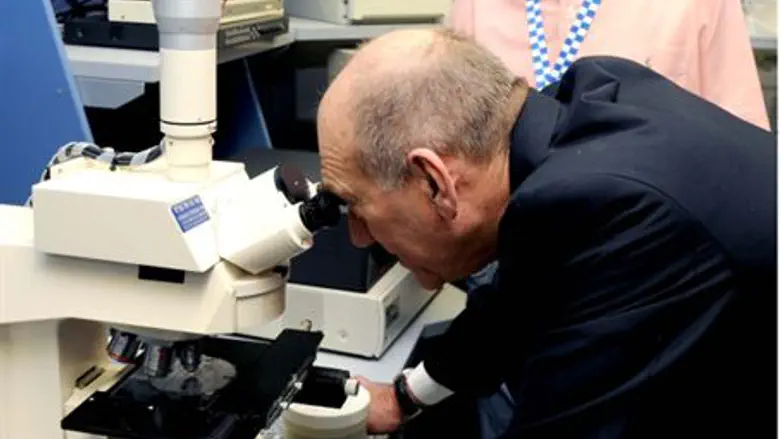
A new treatment for non-Hodgkins lymphoma, a cancer of the circulatory system, has passed its Phase II clinical trial.
The good news was announced by CureTech, a portfolio subsidiary of Teva, which holds 33 percent of CureTech, and Clal Biotechnology Industries. Teva has the option of purchasing all the shares.
The treatment, CT-011, is an investigational anti-PD-1 monoclonal antibody – a humanized monoclonal antibody that modulates the immune response and inhibits tumor growth and the spread of metastases. It interacts with PD-1 (Programmed Death-1), an inhibitory receptor belonging to the B7-receptor family that is expressed on lymphocytes and myeloid cells.
PD-1 and its ligand, PD-L1, have been shown to play a central role in tumor recurrence and progression. The presence of these molecules on different tumors, including lymphomas, colorectal carcinoma, renal cell carcinoma and others, has been associated with poor prognosis.
Preliminary analyses indicate that 70 percent of the patients treated with CT-011 were progression-free at the end of the follow-up period, as compared to only 47 percent in the historical control. Furthermore, 84 percent of the patients treated with CT-011 were alive by the end of the follow-up period, compared to only 62 percent in the historical control.
“We are very pleased to have achieved this major milestone in the clinical development of CT-011,” said Dr. Michael Schickler, CEO of CureTech.
So far, researchers say CT-011 has enabled patients with Diffuse Large B Cell Lymphoma (DLBCL) to reach a primary endpoint of improved progression-free survival (PFS) following autologous stem cell transplantation. In addition, statistically significant results were achieved in the secondary endpoint of Overall Survival (OS).
“DLBCL is an aggressive type of non-Hodgkin's Lymphoma (NHL) affecting about 40% of all NHL patients," said Jacob M. Rowe MD, Director, Department of Hematology, Shaare Zedek Medical Center in Jerusalem, Israel. “I am very encouraged by the results of this trial and am certain that if these results will be confirmed in future controlled Phase III studies, CT-011, a truly novel anti cancer therapy will improve the lives of many DLBCL patients.”
“The results of this early study are exciting,” said Arnon Nagler, MD, Director of the Division of Hematology, BMT and CBB at the Chaim Sheba Medical Center, Israel and co-International Principal Investigator in the study. “There is a significant unmet medical need for therapies that could benefit these patients and I am pleased that such a promising treatment came out of Israeli science."
Final results of the study are expected within the next three months, the company said, after which researchers will present their findings to the international community.